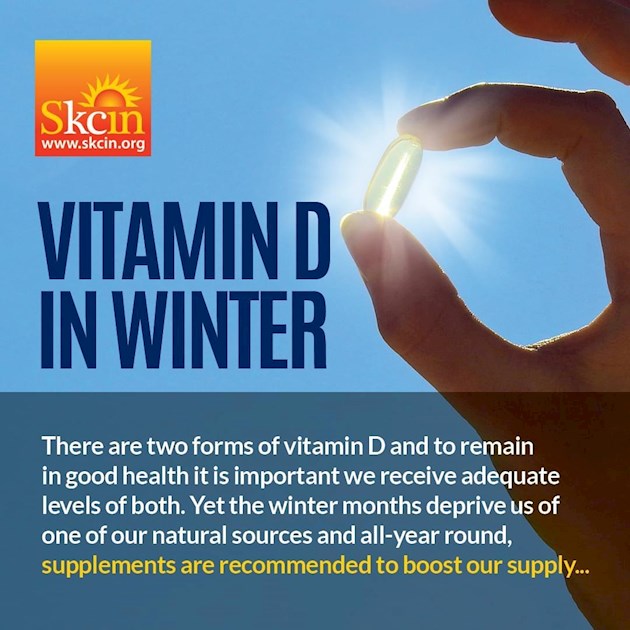Vitamin D2 is ingested from a healthy balanced diet and can be derived from everyday foods such as: Egg yolks and fatty fish like; trout, mackerel, salmon or tuna, as well as cod liver oil, or fortified milk, juices and cereals.
Vitamin D3 however, is most efficiently produced when our skin is exposed to the sun’s UVB radiation. Although environmental and personal factors greatly affect vitamin D3 production in the skin (meaning there is no ‘one-size-fits-all’ level of exposure) for most, vitamin D3 can efficiently and sufficiently be produced in around 15-20 minutes a day - from doses of UV exposure, below those which cause reddening of the skin or sunburn. However, in the winter months, synthesis is often inadequate due to lack of UVB radiation.
Vitamin D deficiency and supplements.
Vitamin D deficiency is not uncommon and can affect all age groups, races and ethnic backgrounds. It’s also not possible to achieve sufficient levels of vitamin D through diet alone. The NHS therefore recommends that we should all (from pre-school aged children, to the elderly) consider taking vitamin D daily supplements, to keep our bones and muscles healthy.
Taking vitamin D supplements is safe as long as you stick to the recommended dosage as too much can cause health problems. However, if you have any health conditions, take any other medication or have allergies, it’s important to take advice from your GP first.
